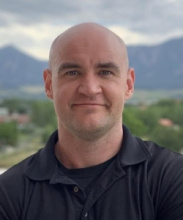Enabling Mutually Adaptive Autonomous Systems through Non-intrusive Performance Estimation
Enabling Mutually Adaptive Autonomous Systems through Non-intrusive Performance Estimation
Abstract
In many human-robot teaming applications, an autonomous system has minimal information regarding its human teammates, particularly with regards to a human's ability to interact with or respond to system demands. If a system were able to predict a human's performance given their current mental state, interactions between human and system could be tailored to match the human's current mental engagement. In an alerting / monitoring scenario, such tailoring could be used to avoid both normalization of deviance, in which a system's warnings are so common so as to be ignored, and undernotification, where a system is aware of a condition and does not alert the human to take action. In my work, we have utilized passive physiological sensors to directly estimate human performance without using intermediate labels such as cognitive states using an online estimation approach based on reinforcement learning. In this talk, I will discuss our problem formulation, initial results, as well as planned experiments to investigate human-aware alerting strategies using immersive environments.
Bio
Steve McGuire is an Assistant Professor of Electrical and Computer Engineering at the University of California Santa Cruz. His lab, the Human-Aware Robotic Exploration (HARE) Group explores human-robot teaming in the context of field robotic applications. Prior to joining UCSC in 2020, he earned his PhD as a NASA Space Technology Research Fellow from the University of Colorado at Boulder in Aerospace Engineering Sciences. He is a former Marine helicopter pilot and has been part of several top-level field robotics initiatives, including the DARPA Grand Challenge in 2004, the Google Lunar X Prize, and the ongoing DARPA Subterranean Challenge.


